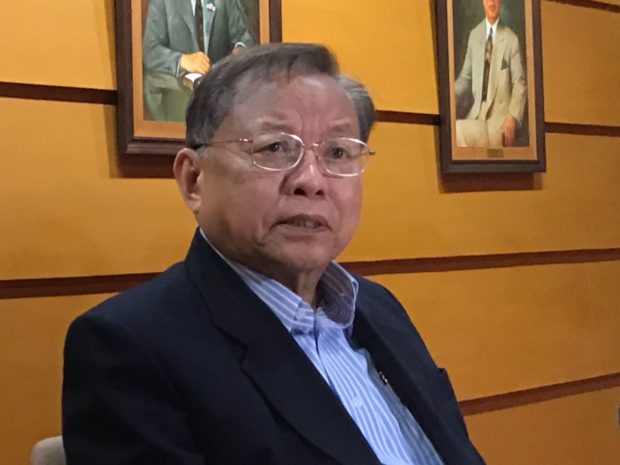ConCom set to resolve issues surrounding political dynasty

Former Chief Justice Reynato Puno is the head of the 20-member Consultative Committee. (File photo by RYAN LEAGOGO / INQUIRER.net)
The Consultative Committee (ConCom) reviewing the 1987 Constitution is set to vote on the provisions that could spell doom for political dynasties in the country.
During Monday’s en banc meeting, the 20-member ConCom is expected to resolve the issues around political dynasties, which is being blamed for corruption in government.
Specifically, the panel would vote on banning relatives up to the second-degree of consanguinity (relations by blood) and affinity (relations by law) to run for public office.
According to the ConCom, this would affirm a consensus reached last week in a committee-of-the-whole deliberation on the “extent of the domination by political dynasties and how they have led to bad governance, created monopoly of political and economic power, bastardized democracy, stunted socioeconomic development, and contributed to poverty.”
The group would also vote on the extent of prohibition on a politician’s holding or running for multiple simultaneous positions at the national, regional (or constituent state), local, and barangay levels
Article continues after this advertisementConCom would have to decide whether two or more relatives to the second degree may be allowed to simultaneously hold or run for positions at the national, regional, local, or barangay levels, or any combination.
Article continues after this advertisementThe body would further vote on the extent of prohibition on succession of incumbent public official by a relative
Particularly, ConCom would have to resolve whether a relative to the second degree may be allowed to run for an office to be vacated by the incumbent at the national, regional, local or barangay levels.
According to the consultative body, a second-degree ban would cover the following relatives of a politician:
- By Consaguinity: (1) Parents (2) Grandparents (3) Children (4) Grandchildren (5) Brothers/Sisters (6) Nephews/Nieces;
- By Affinity (1) Spouse (2) Parents and siblings of the spouse (parents-in-law, brothers/sisters-in-law) (3) Grandparents-in-law (4) Spouses of the politician’s Siblings and their spouses; and
- Step relatives (Step relations – step brother/sister, step parents, etc. – are considered the same as blood relationship)
Currently, there are political dynasties in 73 of the 81 provinces in the Philippines, according to a study by Prof. Rolando Simbulan of the University of the Philippines.
Last February 27, the ConCom tasked by President Rodrigo Duterte to review the Charter, ruled to adopt a federal-presidential system of government.
READ: Con-Com votes to adopt federal-presidential gov’t system
After six months, the panel is expected to present its proposals to Mr. Duterte, who will then submit it to Congress.
Congress may either affirm or dismiss the recommendations of the ConCom. /kga